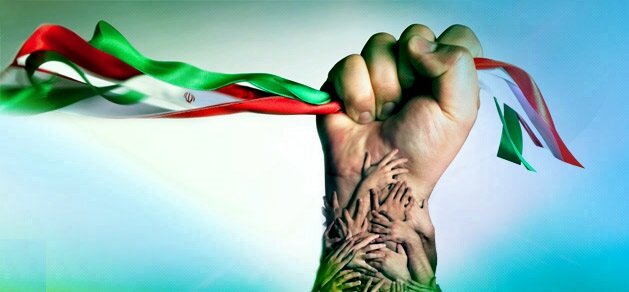By Martin Love

NORTH CAROLINA - From afar one can’t help thinking about how lucky Iran really is in many respects. I mean this sincerely.
Sure, the economy over the past year has dropped nearly 10 percent, according to some economists, and Iran’s people are hurting as they watch whatever standard of living they had decline while inflation has taken a toll and put out of reach many of the goods, especially luxury goods, average people want, even if – probably – the economic problems have not much impacted Iran’s elite. And the reasons for the declines over the past year have mostly but not exclusively been attributed, and rightly so, to the harsh economic sanctions imposed by the U.S. in the wake of the abnegation of the JCPOA for no good reason.
But there is a different way Iranians might think about all this, taking a longer-term view.
First, consider how utterly rich Iran really is compared to maybe four or five other countries in the world, even if Iran can’t currently sell nearly as much of its riches – mostly petroleum – as was possible a year ago. Also consider what it was mostly selling its riches for what will ultimately be worthless paper.
And further consider these factors: even with a population of some 83 million people, it will be generations, if Iran could never sell much if any of its oil any longer before Iranian citizens would ever be without more than enough subsidized energy resources for transportation and heating and the myriad other uses for oil. You can’t say this about more than a handful of other countries. Moreover, Iran has a relatively educated population, and the gene pool might be labeled “SMART”. No one else likely could have invented chess!
One might imagine that the U.S., with five percent of the world’s population (but burning up nearly 30 percent of the world’s energy resources annually) and living relatively “high on the hog”, is eventually going to suffer worse than Iran ever has or will. Yes, the U.S. is allegedly generating over 10 million barrels of oil a day where a few years ago the figure was maybe 6 million BPD. This is because of the recent discoveries of shale oil in the Dakotas and in the Southwest of the U.S.
Shale oil, however, has not proven to be an economic bonanza. For one thing, it’s not a cash flow positive enterprise, and also the wells pumping shale oil rapidly deplete. The various companies doing it are deeply in precarious debt. It has been estimated that 75 or more percent is gone from shale wells within two or three years. (No one can say that about Iran’s oil or gas fields, or for that matter, Arabia’s, such as the granddaddy of them all onshore, Ghawar, or the offshore Safaniya field to name just two.)
Part of the reason (when energy resources really begin to taper worldwide) the U.S is hit harder is because it has been such a profligate user of oil, and wasted so more of it by subsidizing the oil industry and not using those funds to turn strongly to alternative energy such as wind and solar, or even geothermal and oceanic tidal or current sources. (And of all countries, Iran has an abundance, too, of sunshine and wind to make energy, if it ever wants to exploit that route.) Iran can be energy independent virtually forever, but the U.S.? No way at anywhere near today’s levels of greedy usage.
Indeed, according to economist and writer James Howard Kunstler, one must look at both China and the U.S., the world’s two largest economies. He compares the two countries to passengers on a sinking ship drifting beyond the reach of salvation on a powerful historical current. “That current,” he writes, “is the one telling nations quite literally to mind their own business, to prepare to go their own ways, to strive to somehow become self-sufficient, TO FINALLY FACE THE LIMITS OF GROWTH, TO SIMPLIFY AND DOWNSCALE THEIR OPERATIONS.”
In fact, Iran already has a head start in these directions, thanks or no thanks to the imperial U.S. And not having an especially strong economy for now, despite the petroleum riches, Iranians are accustomed to hardships and the necessity for simplification, and probably can survive and deal with hardships in future far better than, for examples, either China, with its huge population just recently enjoying a “middle class” existence or the U.S. with its insatiable greed.
And look at Russia. Russia has also been under the lash of U.S. sanctions and even though it supplies Europe with at least 35 or more percent and growing of its energy needs, and outside of Venezuela may have the largest oil reserves of any country, Russia has begun to prosper increasingly by attempting to develop industry and agriculture that makes it possible to reduce dependency on energy sales. Russia has just begun to supply China with soybeans, for one example, to the horror of American farmers, given the extant and growing trade war between the U.S. and China.
Iran’s leaders, whoever they are or may become, can over time chart Iran’s own way with the same general course Russia is on today: less dependency on a natural resource economy and more on diverse ways to meet the needs of all Iranians and overseas customers in a world that is being forced to do what James Howard Kunstler knows makes sense.

No comments:
Post a Comment